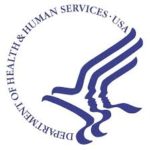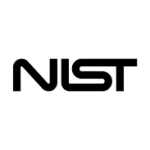The following is the latest health policy news from the federal government for February 16-22. Some of the language used below is taken directly from government documents.
CMS and Medicaid DSH Payments
CMS has published a final rule governing how third-party payers are factored into the calculation of hospitals’ Medicaid disproportionate share hospital-specific payment limit. This change requires that the calculation be based solely on Medicaid costs and payments and that costs and payments associated with dually eligible (Medicare and Medicaid) patients be excluded from the calculation of that limit. The effect of this change is that hospitals that are at or near their DSH limit will – with some exceptions for those for which certain low-income patients represent an especially high proportion of their inpatient days – lose money while those that are not at or near their cap but still qualify for DSH may gain some Medicaid DSH money. The change will take effect for state fiscal years beginning on or after October 1, 2021. Learn more from this pre-publication version of the final rule, which will take effect 60 days after its official publication (which is currently scheduled for February 23).
 Centers for Medicare & Medicaid Services
Centers for Medicare & Medicaid Services
- CMS has posted a bulletin describing the limitations on recoupment of Medicare overpayments during the first and second levels of appeal. Find the bulletin here; it takes effect on July 1.
- CMS has published a document that provides a detailed description of the financial methodology and operational payment features of Medicare fee-for-service hospital global budgets under its States Advancing All-Payer Health Equity Approaches and Development Model (AHEAD) Model. The document seeks to provide eligible applicants and providers with the necessary details to understand the financial aspects of the AHEAD Model. Go here for the financial specifications document and an accompanying fact sheet that details the AHEAD Model’s policy about AHEAD participation overlapping with current CMS models and programs that will concurrently be operating.
- CMS has published its Electronic Clinical Quality Measures (eCQMs) annual update pre-publication document, which describes changes in the standards and code system versions used in the updated eCQMs for potential use in CMS quality reporting programs for the 2025 reporting/performance period. This is designed to help health IT and EHR developers, eligible clinicians, and eligible hospitals/critical access hospitals prepare for the 2025 reporting/performance period through transparent pre-release of expected standards and code system versions. Find the document here.
- CMS has released the second part of draft guidance for its Medicare Prescription Payment Plan that outlines requirements for Medicare Part D plan sponsors, including outreach and education requirements, pharmacy processes, and operational considerations for the program’s first year (2025). The draft guidance supports implementation of the prescription drug components of the Inflation Reduction Act, which seek to reduce the burden of high upfront out-of-pocket prescription drug costs for seniors and people with disabilities with Medicare prescription drug coverage by permitting them to spread costs over a full year rather than requiring them to pay in one lump sum. Learn more from this HHS news release; the part two guidance and a fact sheet on this guidance; and part one of that guidance, which was issued last August, and an accompanying fact sheet on the first part of the guidance. Stakeholder comments on the part two guidance are due by March 16.
- CMS has published a summary of the virtual listening session it held last October to seek feedback from LTCH providers on potential improvements to the LTCH QRP, the LTCH Continuity Assessment Record and Evaluation (CARE) Data Set, advancements to interoperability, and opportunities to enhance provider education. The summary provides an overview of the presentation, stakeholder input on each of the discussion questions, and the key findings. Find the summary here.
 No Surprises Act
No Surprises Act
- Late last year CMS reopened the federal Independent Dispute Resolution (IDR) portal for all dispute types and announced the extension of selected filing deadlines for dispute resolution until March 14, 2024. Now, CMS has affirmed the March 14 end of deadline extensions and additional changes that apply to batched claims. Learn more from this notice at the top of CMS’s “Ending Surprise Medical Bills” web page.
- As required by the No Surprises Act, CMS has published certain information about the federal IDR process. Highlights of the newly published data include:
- The filing of nearly 300,000 disputes during the first half of 2023 – 13 times more than federal officials projected.
- 22 percent of the disputes filed during the first half of 2023 were deemed ineligible for the IDR process – less than half of the 2022 rate of 46 percent.
- Providers won 77 percent of adjudicated disputes.
- The winning offer was very close to the qualifying payment amount (QPA) in 82 percent of resolved cases.
Learn more from the newly published data, which is available here in six downloadable files under “2023 Reporting Year.”
 Department of Health and Human Services
Department of Health and Human Services
- HHS’s Health Resources and Services Administration (HRSA) has updated its Provider Relief Fund and American Rescue Plan rural payments FAQ. The updated FAQ contains 23 modified or new answers to frequently asked questions, mostly about using and reporting on the use of Provider Relief Funds and American Rescue Plan rural payments. Those changes can be found on pages 3 (two changes), 4 (two changes), 5 (2), 7, 14 (2), 15 (2), 16 (3), 17 (2), 19 (3), 20 (2), 42, and 43. Find the updated FAQ here. Past recipients of Provider Relief Fund or American Rescue Plan rural grants should review these changes carefully.
- HRSA has released a Notice of Funding Opportunity for its Behavioral Health Integration Evidence-Based Telehealth Network Program, which seeks to integrate behavioral health services into primary care settings using telehealth technology. Learn more about the program from this funding notice. The deadline for submitting applications is March 22.
- HHS is seeking nominees to serve on its National Advisory Council for Healthcare Research and Quality. The council advises HHS on activities proposed or undertaken to carry out the Agency for Healthcare Research and Quality’s statutory mission of producing evidence to make health care safer, higher quality, more accessible, equitable, and affordable. Seven seats on the council will become available later this year. Learn more about the council’s work, the background it seeks among potential members, and how to submit nominations from this HHS notice. The deadline for applying is April 20.
- HHS’s Office of Information Security and its Healthcare Cybersecurity Coordination Center have published “Russian Threat Actors Targeting the HPH Sector,” a detailed look at threats posed to the health care and public health sectors by various organizations associated with Russia. The new paper, written for a non-technical audience, reviews the recent history of attacks on the health sector and why the sector is targeted for such attacks; presents profiles of the various organizations and describes their tactics and recent attacks; presents case studies; and offers best practices and mitigation techniques for protecting organizations from these attacks. Find the paper here.
- HHS’s Office of the Inspector General has established a web page to serve as an educational resource for recipients of federal financial assistance, federal program officials, and members of the audit community to improve their understanding of the scope, and improve the quality, of Single Audits. Under the Single Audit Act Amendments of 1996, a Single Audit is an organization-wide audit of a non-federal entity’s financial statements and of its expenditures of federal awards. A Single Audit enables one audit to cover the audit requirements for multiple federal awards. Find the Single Audit web page here.
HHS Newsletters
- CMS – MLN Connects – February 22
- AHRQ News Now – February 20
- HRSA eNews – February 15
 Department of Commerce
Department of Commerce
The Commerce Department’s National Institute of Standards and Technology (NIST) has published a cybersecurity resource guide to support implementation of the HIPAA security rule. The guide, an update of the 2008 version, offers guidance and resources that can be used by regulated entities of all sizes to safeguard electronically stored protected health information and better understand the security concepts discussed in the HIPAA security rule. Go here for an overview of the guide and links to the guide itself and supplemental materials.
Government Accountability Office (GAO)
Directed by the Coronavirus Aid, Relief, and Economic Security Act (CARES) Act to report to Congress on its COVID-19 pandemic oversight efforts, the GAO also was asked to review maternal health during the pandemic. In its new report “Maternal Health: HHS Should Improve Assessment of Efforts to Address Worsening Outcomes,” the GAO describes what available HHS data shows about maternal health during COVID-19; examines the extent to which HHS agencies have incorporated key practices to assess the performance of selected HHS maternal health efforts; and offers recommendations for improvement. Go here for an overview of the GAO analysis and links to a highlights document and the complete report.
 Stakeholder Events
Stakeholder Events
CMS – Transforming Maternal Health Model Overview – February 28
CMS will host a webinar on Wednesday, February 28 at 1:00 (eastern) to provide an overview of its Transforming Maternal Health Model. The webinar, intended for an audience of State Medicaid agencies, maternity care providers, managed care plans, and other stakeholders, will offer information about the model’s structure, anticipated care delivery transformations, and resources available to participants. Learn more about the Transforming Maternal Health Model here and go here to register to participate in the webinar.
CDC – Webinar on Overdoses Involving Xylazine Mixed with Fentanyl – February 29
The CDC will offer a webinar on the clinical and public health implications of overdoses involving xylazine mixed with fentanyl on Thursday, February 29 at 2:00 (eastern). During this call, presenters will discuss the epidemiology of overdoses involving xylazine mixed with fentanyl, the current understanding of health risks related to these overdoses, and acute treatment strategies. Presenters also will review the state of laboratory testing, outline potential harm reduction activities, and provide an example of a continuing public health and clinical partnership to mitigate harms from xylazine mixed with fentanyl. Go here to learn more about the webinar, its objectives, the presenters, and how to participate. Continuing education credits are available for physicians, nurses, pharmacists, certified health education specialists, and others.
CMS – Innovation in Behavioral Health (IBH) Model Webinar – February 29
CMS will host a webinar on Thursday, February 29 at 2:00 (eastern) to present an overview of its Innovation in Behavioral Health Model. During this webinar, CMS staff will discuss the model’s goals, eligibility, participant types, care delivery framework, and payment structure and provide additional details on the application process, timeline, and resources. The model’s goal is to improve the quality of care and health outcomes for people with moderate to severe behavioral health conditions, including mental health conditions and/or substance use disorders. The model will test a value-based payment approach that enables community-based behavioral health practices to integrate behavioral health care with physical health needs and health-related social needs. Go here to register to participate and submit questions.
CMS – Rural Health Open Door Forum – February 29
CMS will hold a rural health open door forum on Thursday, February 29 at 3:30 (eastern). Go here to register.
CMS – Hospital Open Door Forum – March 5
CMS will hold a hospital open door forum on Tuesday, March 5 at 2:00 (eastern). Go here to register.
HHS – Office of Climate Change and Health Equity – Webinars on Taking Advantage of Provisions in the Inflation Reduction Act – March 7 (and March 21 and April 4 and 18)
HHS’s Office of Climate Change and Health Equity is holding a series of webinars to help health care providers, and especially safety-net organization, take advantage of the tax credits, grants and other supports made available by the Inflation Reduction Act, which creates opportunities for health sector organizations to invest in clean energy, building efficiency, infrastructure resilience, and more. The next webinar will be held on Thursday, February 8, with additional events scheduled on February 22, March 7 and 21, and April 4 and 18. Separate break-out sessions will be held for essential hospitals, community health centers, and rural providers. Go here to learn more about the webinar series, future events, and the break-out sessions; go here for a recording of a November briefing on Inflation Reduction Act resources available to health care providers; and go here to register to participate.
HHS – Agency for Healthcare Quality and Research – Webinar on Integrating Behavioral Health in Primary Care – March 7
AHRQ will hold a webinar to share its research on the integration of behavioral health in primary care on Thursday, March 7 at 2:00 (eastern). The webinar will feature AHRQ grantees who are researching behavioral health tools and interventions in ambulatory care settings. Go here to learn more about the webinar and to register to participate.
MedPAC – Commissioners Meeting – March 7-8
MedPAC’s commissioners will hold their next public meeting on Thursday, March 7 and Friday, March 8. An agenda and directions on how to participate in the meeting is not yet available but when that information is announced it will be posted here.
MACPAC – Commissioners Meeting – March 7-9
MACPAC’s commissioners will hold their next public meeting on Thursday, March 7 and Friday, March 8. An agenda and directions on how to participate in the meeting is not yet available but when that information is announced it will be posted here.
CMS – Health Equity Conference – May 29-30
CMS will hold its second annual CMS Health Equity Conference on Wednesday, May 29 and Thursday, May 30. The free, hybrid conference will be held in person in Bethesda, Maryland and available online for virtual participation and involve health equity leaders from federal and local agencies, health provider organizations, academia, community-based organizations, and others. Conference participants will hear from CMS leadership on recent developments and updates to CMS programs; explore the latest health equity research; discuss promising practices and creative solutions; and collaborate on community engagement strategies. CMS is now accepting proposals for breakout session speakers and poster presenters. Learn more from the conference web page.

 Centers for Medicare & Medicaid Services
Centers for Medicare & Medicaid Services Stakeholder Events
Stakeholder Events